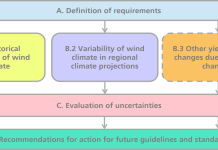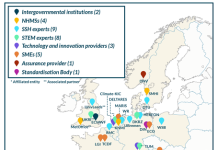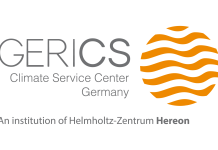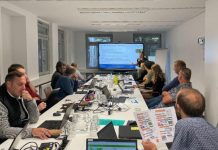Open Access Government produces compelling and informative news, publications, eBooks, and academic research articles for the public and private sector looking at health, diseases & conditions, workplace, research & innovation, digital transformation, government policy, environment, agriculture, energy, transport and more.
Home 2026
Archives
GERICS and the Planetary Science Pavilion at COP30
Henry C. Wu, Scientific Officer, GERICS, discusses the role of evidence and science-based solutions for global climate negotiations as explored at COP30.
Science Platform Sustainability 2030: Bridging science and policy for sustainable transformation
Julian Trutz Müller, a Scientific Officer at GERICS/wpn2030, discusses the importance of bridging science and policy for sustainable transformation, using the case study of the Science Platform Sustainability 2030 (wpn2030).
From drought resilience to disease risk
Integrating public health into wetland nature-based solutions (NBS) in Southern Europe.
Climate-proofing public procurement: Mainstreaming tailored climate information into every stage of the process
Cities are central to both the causes and solutions of the climate crisis. Local governments, through their regulatory and spending powers, hold significant potential to advance climate neutrality. Integrating climate considerations into public procurement can transform it from a procedural necessity into a strategic instrument for mitigation, adaptation, and sustainable urban development.
Mounting water scarcity: A complex challenge requiring nuanced solutions
Addressing increasing water scarcity is a complex challenge that requires nuanced solutions, according to Peter Greve from the Climate Service Center Germany.
The Climate-Space-Security Nexus
Dr. Christine Nam (GERICS) discusses how climate risks can impact Europe’s burgeoning space sector, which in turn has cascading risks that can impact Europe’s peace and security.
Carbon-neutral lifestyle changes and their impact on future health in cities
Dr Peter Hoffmann and Deniz Sirin at Climate Service Center Germany explore carbon-neutral lifestyle changes and their impact on future health in cities.
Climate change webinar: The interconnection between hazardous events and health
Discover the latest webinar by Open Access Government in discussion with Professor Daniela Jacob, Professor Kirstie Ebi and Professor Virginia Murray, about the climate crisis and our health.
Integrating future climate change into corporate strategies
Here, we briefly describe and discuss an innovative eight-step process model designed to integrate future climate change into corporate processes.
How climate extremes are endangering millions in Africa
Alain Tamoffo, Postdoctoral Researcher at the Climate Service Center Germany (GERICS), Helmholtz-Zentrum Hereon, discusses how climate extremes are endangering millions in Africa.
Cooperation on the coastal tourism adaptation to climate change
The Climate Service Center Germany (GERICS) and the Blue Flag Programme cooperate on the coastal tourism adaptation to climate change.
Climate change, energy demand and health: Protecting vulnerable populations
Jo-Ting Huang-Lachmann, Junior Research Group Lead at the Climate Service Center Germany, discusses climate change, energy demand, and health to safeguard vulnerable populations.
GERICS: Towards resilient cultural heritage
Cultural heritage is an integral part of urban areas as an expression of their social, economic, and environmental development. Here, GERICS explain how they can help.
Removing carbon dioxide from the atmosphere
Many countries aim to achieve the net-zero emission target. This means that any human activity releasing greenhouse gas emissions into the atmosphere must be counterbalanced by an equivalent amount being removed. But how is that supposed to work? And what do the public and stakeholders think of it?.
GERICS supporting climate-resilient wind energy sites
Dr. Irem Isik Cetin and Dr Elke Keup-Thiel offer expert insights on how GERICS supports the climate-resilient development of wind energy sites.
GERICS: Supporting Climateurope2 and standards for Climate Services
Climateurope2 is a 4.5-year Horizon Europe funded project that addresses the need for timely delivery and effective use of climate information
Climate Service Center Germany (GERICS)
The Climate Service Center Germany (GERICS) was initiated by the German Federal Government in 2009 as a fundamental part of the German hightech-strategy for...
Supporting climate action in the agricultural sector
Climate Service Center Germany (GERICS) discusses here how innovative climate service products can help inform climate adaptation and mitigation, particularly within the agricultural sector.
Future climate services for resilient cities: The CoKLIMAx lighthouse project
Climate Service Center Germany (GERICS) is exploring future climate services for resilient cities by focusing on the CoKLIMAx lighthouse project.
Machine learning helps to improve climate services
Machine Learning methods have received significant attention in the past few years as a game changer for product development and Climate Services.





















